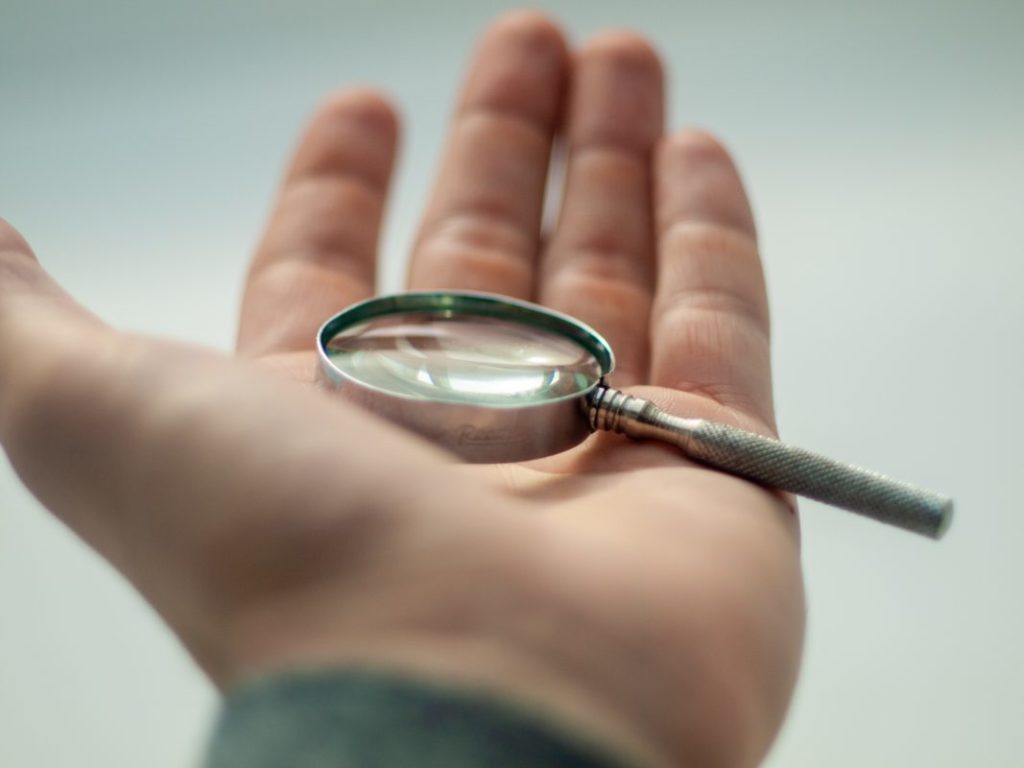How can you tell if someone is using drugs? If someone you know or love is exhibiting strange behaviors that seem out of character, it is important to know how to tell if they may be using drugs.
Drug use can have very serious short-term and long-term consequences and can lead to addiction. In this guide, we will discuss the signs and symptoms of drug use and how to approach the situation if you suspect a loved one may be using drugs.
Searching for help with drug and/or alcohol addiction? Call us now at (888) 583-3480.
Why Is It Important To Know The Signs of Drug Use?
While drug use may appear to be self-destructive behavior, it’s important to remember that individuals struggling with substance abuse may feel isolated and likely may need help.
Learning to recognize the signs of drug use can enable you to support this person while also protecting yourself from potential harm.
Signs of drug use are often more subtle than people realize, ranging from changes in behavior and general disinterest in activities they once found engaging to physical signals like body odor, dilated pupils, and red or glassy eyes.
You must know what to look for so that if a problem arises, you can spot it quickly and offer help before it progresses.
With this article, you’ll learn about some of the most common signs of drug use amongst those close to you and strategies for handling the situation.
What are the Signs of Drug Use?
Drug use can have a powerful influence on a person’s behavior, altering their actions in ways that can cause severe problems for themselves and those around them.
Being under the influence of drugs can drastically impair a person’s judgment, leaving them more prone to reckless and destructive decisions. These may include taking more significant risks, participating in criminal activity, or engaging in violent behavior toward others.
Long-term drug addiction can further change an individual’s character and lead to drastic personality changes, such as becoming isolated and withdrawn from friends, family, and even society at large.
The effects of drugs on a person should not be taken lightly, as they can dramatically impact their life in very negative ways.
Physical Signs of Drug Use by Drug Type
Drug usage can vary in form and intensity depending on the substance being used. While some drugs, such as alcohol, are legal if consumed responsibly and may cause mild physical and mental changes, other drugs, like opioids, can be far more dangerous and lead to addiction.
In addition to the obvious signs of drug abuse, such as increased isolation or unusual manic episodes, different types of drugs1 have their own unique tell-tale indications.
For example, heroin addicts usually suffer from rapid weight loss due to nutritional deficiencies, while those using marijuana may have a strong smell evident on their clothes or skin.
Every illegal drug will produce its own individual effects that can often be observed by loved ones, especially when use becomes excessive or prolonged.
Signs of Opioid Use (Fentanyl, Heroin)
Physical signs of opioid, fentanyl and heroin use can range from dilated pupils to decreased appetite, constricted blood vessels, and shallow breathing.
Prolonged users can even display infections or lesions at injection sites due to poor hygiene.
These are often accompanied by behavioral changes such as withdrawal from close friends, avoidance of family members, and lack of motivation.
Other indications that someone may be using opioids, fentanyl, or heroin include hoarding pill bottles and exhibiting paranoia when discussing illicit drugs.
It is important to be observant while showing support if the user is looking for help, so they feel comfortable enough to seek out treatment or detox options openly.
Signs of Stimulant Use (Meth, Cocaine, Amphetamines)
Stimulant use, like meth, cocaine, and amphetamines, can have a disastrous effect on physical health.
Common physical signs of use include significant weight loss or gain due to extreme appetite changes, mood swings, dilated pupils, and insomnia.
Other physical effects can include dehydration, increased body temperature, increased heart rate, and erratic pulse, which can put individuals at risk for cardiac arrest.
Sadly, many of these signs develop over time as the stimulant abuse continues to worsen. Anyone using drugs must be aware of the potentially life-threatening risks of using these drugs.
Signs of Benzodiazepine Use (Xanax, Ativan, Klonopin)
Benzodiazepines, such as Xanax, Ativan, and Klonopin, are commonly prescribed medications for treating anxiety and insomnia. It is essential to be aware of the physical side effects of taking benzodiazepines.
Common signs include headaches, dizziness, impaired balance, increased or decreased heart rate or blood pressure, feelings of weakness, slurred speech, and confusion when thinking.
Additionally, these drugs can produce various cognitive effects like difficulty concentrating or problems remembering.
Ultimately, everyone’s body reacts differently to these medications, so it is important to monitor how you feel while taking them.
If any adverse side effects are experienced either physically or cognitively that do not seem right, then medical help should be sought immediately.
Financial Signs of Drug Use
Drug use can significantly affect someone’s financial behaviors, often leading to severe economic repercussions.
For those in an active state of drug use, their primary priority shifts away from making sound financial decisions as drug costs become the most significant expense.
Not only does this create undesirable economic consequences for the individual – such as spiraling debts and a lack of savings – it can also cause indirect pressures on family and friends who are expected to cover related costs or make sacrifices to keep up with demands from the addict.
Therefore, long-term drug users need help before they face ever-increasing financial difficulty.
Spending Money Irresponsibly and Changes In Spending Habits
Many people are unaware that signs of drug use can sometimes be detected in their spending habits.
People suffering from addiction may show a sudden and dramatic change in their spending behavior, consistently spending more money than usual on random items or purchasing drugs.
Household budgets may be reduced over time, with money going toward supporting the habit instead of necessary living expenses.
This increase in financial activity can then serve as a sign that someone has developed an addiction and needs help to overcome it.
Understanding the possible correlations between sudden changes in spending and potential drug use is an important component of fighting addiction before it takes root.
Borrowing Money and Taking Out Loans
Borrowing money from friends and family, as well as taking out unusual loans such as payday loans or title loans, can be a sign of an addiction.
When someone is so desperate for money that they will take it without considering the consequences, it can lead to dangerous financial situations and put them in further debt.
These types of loans typically come with extremely high-interest rates, making it hard to repay the loan. It can ultimately ruin someone’s credit score and relationship with those they borrowed from and leave them worse off than before they borrowed the money.
If you find yourself borrowing money often or going to extreme lengths to get cash fast, it may be time to address any underlying addiction issues you may be facing.
How to Talk to Someone About Their Drug Use
Talking to someone about their drug use can be daunting. It is important to remember that approaching the conversation from a place of care, rather than blaming or judging, will help ensure it is well-received.
It is perfectly okay to express your concerns and create a safe space for them to share their thoughts and feelings. If it helps, try role-playing the conversation before to be more prepared to bring up topics such as the consequences and health risks of drug use.
This can help make it easier for the person to open up honestly and directly so that together you can find ways to address any issues or support needed about their drug use.
Consider If You Are The Right Person
It’s important to consider if you are the right person to talk to someone about their drug use. If you have a close relationship with the person, this could be beneficial as they may take your advice more seriously.
On the other hand, your opinion or advice might not mean as much if you don’t have an existing strong connection.
It’s also essential that when trying to have this conversation, you approach it tactfully and without judgment.
A constructive dialogue is critical here. You should ensure that your opinions come from a place of kindness rather than criticism; understanding will go much further in getting your point across.
Choosing The Right Time and Place
Considering the right and safe time to talk to someone about their drug use is critical in addressing the issue.
Before speaking with this person, it’s important to plan what you want to discuss and how to bring it up for the conversation to be productive.
Timing is also crucial when trying to talk about drug addiction matters with a loved one since bringing it up at an inappropriate or particularly vulnerable moment can hinder any chances of establishing a fruitful dialogue.
Be mindful of times when the individual may feel especially overwhelmed, such as after going through difficult experiences or participating in activities that generally increase susceptibility to substance abuse.
The best option is usually when they feel calm and open-minded so they can take in your message without too many emotionally-charged distractions standing in the way.
Gather Support If You Need
When the time comes to talk with someone about their drug use, it is important to consider having a conversation with other supportive family members or friends.
Knowing they are not alone in this dialogue can make them feel more comfortable and less intimidated while giving them access to additional resources if necessary.
It’s also important to remember that although this is a tough conversation to have, it is perhaps the most crucial to start making positive strides in the right direction.
That being said, a delicate balance must be struck between showing strong support and love while maintaining boundaries to create clear expectations.
Be Calm and Non-Judgmental
When discussing another person’s drug use, it is crucial to remain calm and non-judgmental. These conversations can often be complex and uncomfortable, so it helps to focus on using language that shows you want to help.
It can be helpful to ask open-ended questions instead of making accusations or assumptions. Remember not to belittle the person or their choices, as this will make them feel misunderstood and alone.
Offer your support and listen without judgment no matter what they say, then suggest resources they can take advantage of if they want to change their behavior.
Express Genuine Concern
When approaching someone about their drug use, it’s important to be mindful of the words we choose and the tone in which we use them.
Communication needs to come from a place of genuine care and concern so that they don’t feel judged or seen as less than others.
It’s paramount to let them know that you’re on their side, advocating for their well-being, and want to offer your support while they grapple with any potential addiction issues they may be facing.
A successful conversation means understanding and validating their feelings without condoning or enabling any of their destructive behaviors.
By establishing trust, individuals open up more about their challenges and create mutual growth and healing opportunities.
How to Offer The Person Resources for Treatment
It is important to encourage people suffering from substance abuse to seek professional help and treatment to better understand and cope with their addiction. Getting help for those suffering from substance abuse is essential to their recovery.2
Offering support, information on rehabilitation programs, and resources for counseling can be an effective way of showing them the path forward.
In this situation, it is highly recommended to provide them with a list of reliable treatment centers and funding sources available for those unable to cover the cost of treatment themselves.
Ultimately, we must be there for our family members and friends struggling with addiction in any capacity necessary so that they know they have a safe place to turn when seeking recovery from substance abuse.
Talk to the person about the importance of getting help for addiction and drug use
When speaking to someone struggling with substance abuse, it’s important to stress the importance of seeking help. Substance use can seriously impact an individual’s physical, mental, and social well-being.
Receiving the right kind of assistance is critical for weaning off addiction and maintaining recovery—whether professional care from a qualified doctor, therapy from a specialist in substance abuse treatment, or support from their family or peers.
Moral support is essential because addiction can be filled with stigma and shame. Reassuring the person that they are not alone and don’t have to go through this alone goes a long way.
For optimal outcomes and long-term sobriety, encourage them to seek all available options for treatment.
Reach Out to a Local Treatment Center for Help
If you or someone you care about has been abusing substances, reaching out to a local treatment center is one of the best first steps toward recovery.
It can seem overwhelming to take this step alone, but many resources can provide support and guidance throughout the process.
The dedicated staff of a treatment center can help you identify what type of treatment is best suited for specific needs, whether it’s counseling sessions, rehabilitation programs, or other options.
You don’t have to feel helpless anymore – when you reach out for help, many doors open up that can get your life back on track.
Cornerstone Healing Center in Scottsdale, AZ Can Help You and your loved one
At Cornerstone Healing Center, we recognize that addiction is a complex and challenging issue. Our team of experienced professionals helps clients take the first steps on their journey to recovery.
Through comprehensive treatment plans tailored to meet the unique needs of each individual, we equip our clients with the resources needed for long-term success.
With evidence-based therapies, intensive trauma work, and an emphasis on healing for the whole person – mind, body, soul – we empower our clients with tools to cope with cravings and regain control of their lives from addiction.
Sources
[1] Drug Addiction (Substance Use Disorder)
[2] Cleveland Clinic: Substance Use Disorder (SUD)
Published: 3/6/2023





